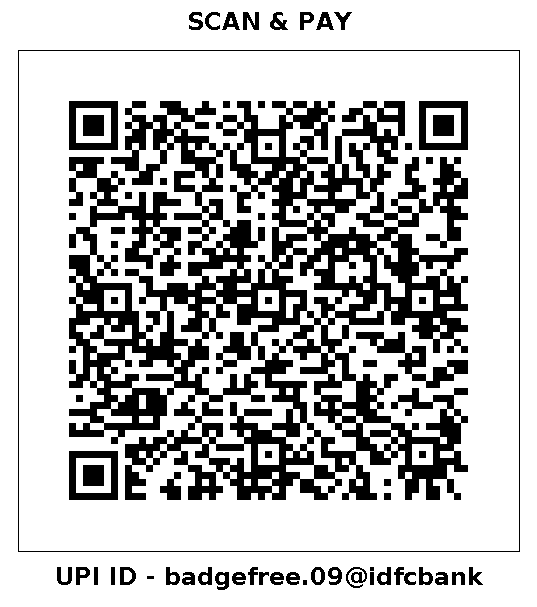In the modern workforce landscape, traditional employment structures are evolving rapidly, giving rise to what is commonly referred to as the “gig economy.” The gig economy encompasses a diverse workforce of freelancers, contractors, and gig workers who provide their services on a temporary or project-based basis. While this trend offers flexibility for both employers and workers, it also presents unique challenges in talent management. In this blog, we will delve into the specific challenges and opportunities associated with managing freelancers, contractors, and gig workers within a talent management framework.
Understanding the Gig Economy
Before we dive into the intricacies of talent management in the gig economy, it’s crucial to understand the key players in this landscape:
- Freelancers: These are independent professionals who offer their skills and services on a project-by-project basis. They often have multiple clients and enjoy autonomy in their work.
- Contractors: Contractors are individuals or firms hired to perform specific tasks or provide specialized services for a defined period. They may work exclusively for one client or handle multiple contracts simultaneously.
- Gig Workers: Gig workers typically perform short-term, on-demand tasks through digital platforms or apps. Examples include Uber drivers, TaskRabbit handymen, and food delivery couriers.
Embracing the Gig Worker Mindset
One of the intriguing aspects of the gig economy is the entrepreneurial spirit that often drives gig workers. Many freelancers, contractors, and gig workers are self-starters who relish the autonomy and flexibility the gig economy provides. Organizations can tap into this mindset by encouraging intrapreneurship among their gig workers. Intrapreneurs within the contingent workforce can be valuable sources of innovation, bringing fresh ideas and solutions to projects. By nurturing this spirit and providing gig workers with opportunities to take ownership of their tasks, organizations can not only enhance project outcomes but also create a more engaging and fulfilling work environment. Recognizing and supporting the gig worker’s desire for skill development and career growth can lead to long-term collaborations and help companies build a network of reliable and skilled contingent talent. In doing so, businesses can transform the gig economy from a challenge into a strategic advantage by aligning their goals with the aspirations of their gig workforce.

Challenges in Managing Gig Workers
- Lack of Long-term Commitment: Gig workers are often not committed to any single employer, which can pose challenges in building a cohesive team and fostering loyalty.
- Communication and Collaboration: Managing a distributed and diverse workforce can be challenging. Effective communication and collaboration become critical to ensuring project success.
- Performance Measurement: Traditional performance metrics may not be suitable for gig workers, as they may have varying levels of commitment and engagement. Assessing their performance accurately can be complex.
- Legal and Compliance Issues: Different labour laws and regulations may apply to gig workers, freelancers, and contractors. Ensuring compliance with these laws is essential to avoid legal complications.
- Talent Retention: Gig workers often have a high turnover rate due to the transient nature of their work. Retaining top talent becomes a constant challenge.
Opportunities in Managing Gig Workers
- Access to a Diverse Talent Pool: The gig economy allows organizations to tap into a global pool of talent with diverse skills and experiences, offering fresh perspectives and innovation.
- Scalability and Flexibility: Companies can quickly scale their workforce up or down to meet project demands, reducing overhead costs associated with permanent employees.
- Cost Efficiency: Gig workers are often more cost-effective than hiring full-time employees, as they are usually paid per project or on an hourly basis without the need for benefits.
- Specialized Expertise: Organizations can engage specialized contractors and freelancers for specific projects, ensuring that they have the right skills and knowledge for the job.
Talent Management Framework for the Gig Economy
To effectively manage freelancers, contractors, and gig workers, organizations must develop a talent management framework tailored to the unique dynamics of the gig economy:
- Clear Communication and Expectations: Establish clear communication channels and set expectations from the beginning. Provide gig workers with a detailed project scope, objectives, and timelines.
- Technology and Tools: Invest in collaboration and project management tools to facilitate seamless communication and task tracking among remote teams.
- Performance Metrics: Develop performance metrics that align with project goals. Consider both quantitative and qualitative measurements to evaluate gig workers’ contributions.
- Compliance and Legal Support: Stay updated on labour laws and regulations relevant to gig workers. Engage legal experts to ensure compliance and mitigate potential risks.
- Onboarding and Training: Provide gig workers with adequate onboarding and training to ensure they understand the company’s culture, values, and project-specific requirements.
- Recognition and Reward Systems: Implement recognition and reward systems to motivate gig workers and acknowledge their contributions. This can include monetary incentives, certificates, or future collaboration opportunities.
- Feedback and Evaluation: Regularly solicit feedback from gig workers and clients to identify areas for improvement in talent management practices.
- Talent Retention Strategies: Explore strategies to retain top-performing gig workers, such as offering them additional projects, career development opportunities, or the option to convert to full-time roles.
Cultivating a Culture of Inclusion and Collaboration
In the gig economy, where remote work is prevalent, it’s essential for organizations to foster a culture of inclusion and collaboration. Despite the physical distance that often separates gig workers from the core team, they should feel like valued members of the organization. Companies can achieve this by actively involving gig workers in team meetings, brainstorming sessions, and decision-making processes. Inclusivity not only enhances job satisfaction among gig workers but also promotes a sense of belonging that can lead to higher productivity and better project outcomes. Additionally, facilitating knowledge sharing and cross-functional collaboration can be instrumental in harnessing the diverse skills and experiences that gig workers bring to the table. By creating a collaborative environment where everyone’s contributions are acknowledged and respected, organizations can harness the full potential of the gig economy while ensuring a positive and productive working relationship with their contingent workforce.
Conclusion
Talent management in the gig economy presents both challenges and opportunities for organizations. To thrive in this dynamic landscape, businesses must adapt their talent management practices to suit the needs of freelancers, contractors, and gig workers. By fostering clear communication, leveraging technology, and implementing effective performance metrics, companies can harness the potential of the gig economy while mitigating its inherent challenges. In doing so, they can build a workforce that is agile, skilled, and ready to meet the demands of the evolving world of work.
Blog Writer:
Dhivyashree J
Young Business growth accelerator, badgefree





